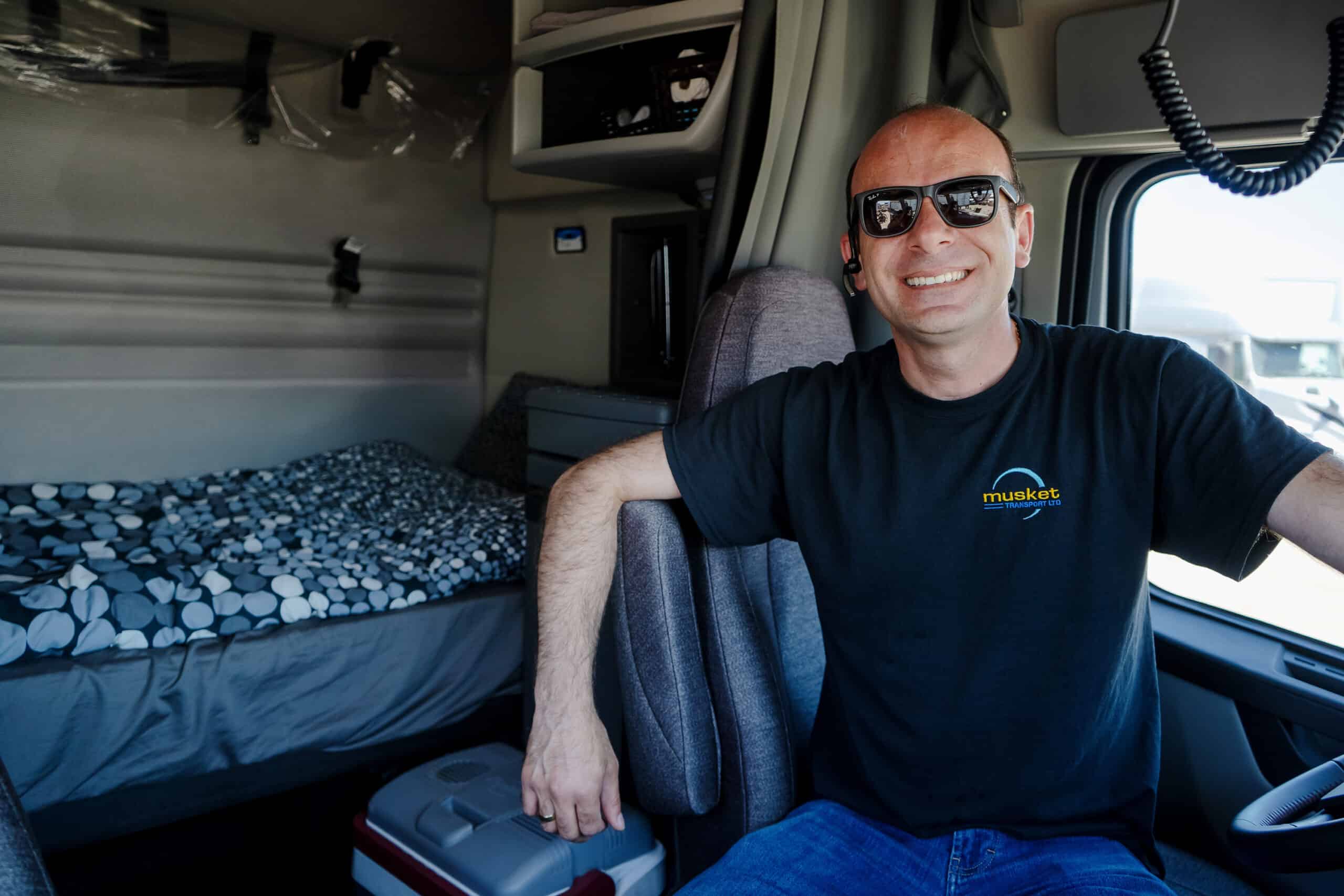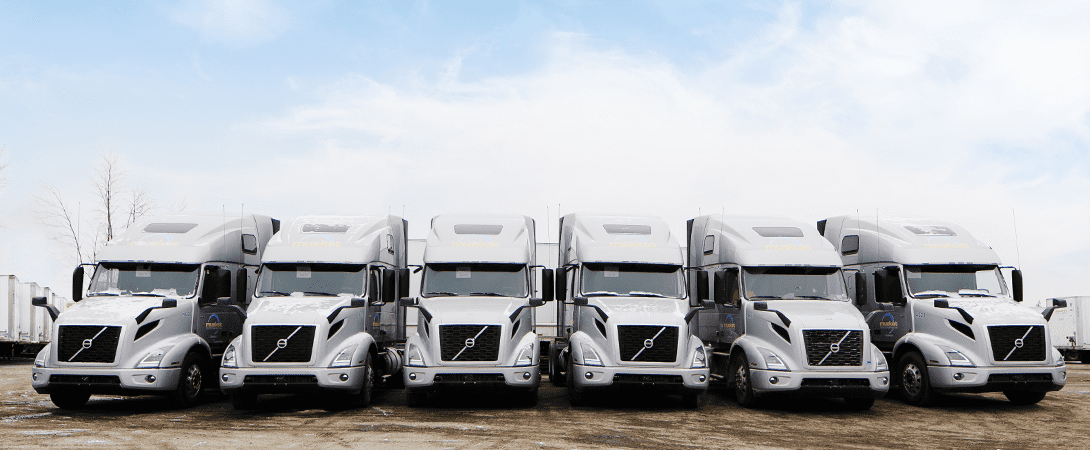The pros and cons of becoming an owner operator or a company driver in the trucking industry, the differences between the two and what each entails in terms of responsibilities and benefits.

When you’re first starting out in the world of being a professional truck driver, there are generally two options that lie before you. You can become an Owner Operator or you can become a Company Driver. The differentiation is fairly simple, but both have their pros and cons.
WHAT’S THE DIFFERENCE?
An owner operator is a self-employed truck driver who owns and operates their own trucking business. They have the freedom to choose their own loads, set their own schedules, and work as much or as little as they want (within reason and dependent on the company they’re contracted to). In addition to being responsible for maintenance and fuel costs, owner operators also need to manage their own finances and taxes. If fully independent, they will need to pay for insurance, license plates and permits as well. As a fully independent Owner Operator they must have good business skills to find and book loads, negotiate rates, and maintain customer relationships. As a result, being an owner operator requires a lot of hard work, dedication, and business acumen.
On the other hand, a company driver is an employee of a trucking company who is assigned loads and operates the company’s equipment. They are typically compensated by hours worked, miles driven, specific routes driven or a combination of the three. Additionally, the company covers the cost of maintenance, fuel, and other expenses. Company drivers are also often provided with benefits such as health insurance, retirement plans, and paid time off. These benefits can help to ensure that employees are satisfied with their jobs and remain with the company for a longer period of time. Working as a company driver may also afford drivers the opportunity to receive training and gain experience in different types of equipment and cargo, which can lead to career advancement within the company.

WHICH ONE IS THE BETTER CHOICE?
There isn’t a clean cut good or bad choice when it comes to selecting one or the other. However, Musket Transport’s Health and Safety Manager Daryn Rabb has some sage advice for anyone looking to become a driver:
“A little recommendation for [new drivers] who are thinking about becoming an owner operator at some point,” offered Rabb. “As a general rule of thumb, we tell people five years. Wait till you have five years’ experience driving somebody else’s equipment before you make that move. Why? Because you need to take the time to understand how to drive it efficiently. What kind of maintenance is required? What kind of breakdowns can I expect?”
“It’s not even about making mistakes and you know, yes, you will potentially make mistakes, but it’s more about how there’s a lot of information to take in and learn, and to be successful as an owner operator, you need to understand this stuff before you get into it. Basically, you’re running your own company, and you’ve got all the responsibilities that go with that. And you know, you think you’ve got to work hard as a [company] driver? As an owner operator you’ve got to work even harder, because you have truck payments and they’re pretty close to mortgage payments.”
Musket Owner Operator Michal S. adds: “These days if you’re a brand-new owner operator and you blow out a spare tire, a service call for the tire alone they’re charging you on the side of the road- in the states- $1,000 plus a service call, another let’s say, $250 to $500.”
“Once you’re an owner operator and you have that truck payment, if you miss one payment, they’ll give you the benefit of the doubt. If you miss two payments, they’re going to come looking for the truck to repossess it. And that’s your bread and butter, especially if you’re the only one that has an income.”
Wait till you have five years’ experience driving somebody else’s equipment before you make that move. Why? Because you need to take the time to understand how to drive it efficiently. What kind of maintenance is required? What kind of breakdowns can I expect?
In recent years, the cost of a new truck has sky rocketed. A fully equipped truck can total upwards of $300,000. When considering the move to owner operator, it’s vital to factor in truck payments alongside regular month bills. Keeping up with those payment during slow periods can be a struggle, and though mileage rates may seem better as an owner operator, there are many things that eat into that rate. As an example, owner operators do not get paid vacation time. If the truck isn’t moving, money isn’t being made. Thus, taking time off becomes more challenging.
“Financially at the beginning, if you’re coming on as a company driver, it won’t really be a struggle because the equipment’s not yours. It’s just turn-key and at the end of the day you park it and walk away from it. But as an owner operator, brand new to the industry: let’s say somebody gets their license and goes for a truck right away, I would say make sure your other finances are in order before you jump into it, because if something goes wrong with the truck, that’s your life, right?”
No matter what you decide, be sure to properly weigh your options to decide the best course of action for you and your new career. There are always going to be advantages and disadvantages to both, but in the end the only important thing is to do what’s right for you. This is, after all, your life and your career.


